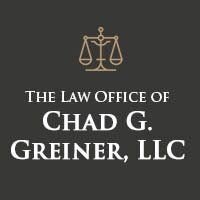Best Commercial Real Estate Lawyers in Georgia
Share your needs with us, get contacted by law firms.
Free. Takes 2 min.
Free Guide to Hiring a Real Estate Lawyer
Or refine your search by selecting a city:
List of the best lawyers in Georgia, United States
About Commercial Real Estate Law in Georgia, United States
Commercial real estate law in Georgia covers the purchase, sale, leasing, financing, development, and management of properties intended for business use. This can include office buildings, retail centers, warehouses, industrial properties, and land for commercial development. The area is governed by a combination of federal, state, and local regulations that impact everything from zoning to financing and environmental concerns. In Georgia, commercial real estate transactions are often complex because of the state's unique property regulations, local ordinances, and business climate. As a result, navigating these transactions requires an understanding of both the legal and practical considerations specific to Georgia.
Why You May Need a Lawyer
Engaging an experienced attorney is highly recommended in commercial real estate for several reasons. Common situations where legal help can be vital include:
- Drafting or reviewing commercial leases to ensure terms are fair
- Negotiating purchase and sale agreements to protect your interests
- Conducting title searches and handling title insurance issues
- Addressing zoning and land use compliance questions
- Resolving disputes related to property boundaries, contracts, or development rights
- Navigating lender requirements, financing documents, and loan closings
- Assisting with environmental compliance, such as hazardous material disclosures
- Helping with tax issues or structuring transactions to minimize liabilities
- Advising on foreclosures, bankruptcies, or distressed property transactions
- Representing clients in litigation or mediation regarding real estate matters
A knowledgeable lawyer can help you avoid costly mistakes, ensure regulatory compliance, and safeguard your business interests throughout all stages of a commercial real estate transaction in Georgia.
Local Laws Overview
Georgia's commercial real estate is influenced both by state laws and by local county and city regulations. Some key aspects of Georgia law to be aware of include:
- Contract Requirements: In Georgia, real property contracts, including leases, must be in writing to be legally binding under the Statute of Frauds.
- Closing Procedures: Georgia requires a licensed attorney to handle real estate closings. The attorney must be actively involved in the transaction and present at the closing table.
- Title Law: Georgia is an attorney closing state, and buyers are encouraged (often required) to purchase title insurance to protect against defects in title.
- Zoning and Land Use: Zoning regulations vary by municipality. Local zoning boards and planning commissions control permitted uses, variances, and development approvals.
- Environmental Regulation: Certain properties may require environmental assessments to comply with state and federal standards, especially with industrial or manufacturing sites.
- Disclosure Requirements: Sellers must disclose known material defects. However, buyers are expected to perform their own due diligence as Georgia applies "caveat emptor" (buyer beware) principles in many circumstances.
- Tenant Rights and Evictions: Commercial leases are usually governed strictly by contract, and local courts enforce the terms, including default and eviction provisions.
- Property Taxes: Commercial properties are assessed and taxed by county tax commissioners. Georgia law offers appeal procedures for disputing tax valuations.
Given these unique requirements and the differences from residential transactions, it is important to work with professionals knowledgeable about Georgia commercial real estate laws.
Frequently Asked Questions
What types of properties are considered commercial real estate in Georgia?
Commercial real estate includes office buildings, shopping centers, hotels, warehouses, industrial parks, medical offices, and land intended for business development.
Do I need a lawyer to buy or sell commercial property in Georgia?
Georgia law requires a licensed attorney to conduct and be present at the closing of any real estate transaction, including commercial deals.
What is the difference between a commercial lease and a residential lease in Georgia?
Commercial leases offer less statutory protection for tenants and are generally governed by the terms negotiated between parties. Residential leases have stricter consumer protections under Georgia law.
How can I check zoning laws for my commercial property?
Zoning laws are set by local city or county governments. Contact the local zoning office or planning department to verify permitted uses and any restrictions for your property.
What is "caveat emptor" and how does it apply?
"Caveat emptor" means "let the buyer beware." In Georgia commercial real estate, buyers are expected to investigate property conditions themselves, as sellers are not required to reveal every issue unless asked directly or unless it is a known material defect.
What are common pitfalls in Georgia commercial real estate transactions?
Common issues include unclear property boundaries, undisclosed liens, zoning problems, environmental contamination, and ambiguous contract terms. Legal advice can help prevent these problems.
Can landlords evict commercial tenants quickly in Georgia?
Commercial landlord-tenant law is governed primarily by the lease contract. If tenants default, landlords can begin eviction proceedings after proper notice and through court procedures.
What should I look for in a commercial lease agreement?
Key provisions include rent terms, renewal and termination rights, maintenance responsibilities, allowable uses, assignment and subletting conditions, and dispute resolution procedures.
Are buyer and seller real estate agents required for commercial property deals in Georgia?
Agents are not legally required, but many parties use them for their market expertise and negotiation skills. However, using a real estate lawyer is required by Georgia law for closings.
How are property taxes calculated and paid for commercial real estate?
Commercial property taxes are assessed locally and based on the property's appraised value. Owners are typically billed annually by the county tax commissioner.
Additional Resources
Several organizations and agencies can assist those seeking more information or help with commercial real estate in Georgia:
- Georgia Bar Association: For attorney referrals and legal information
- Georgia Real Estate Commission: Licensing, regulatory information, and consumer resources
- Local county and city zoning offices: For zoning, permitting, and land use inquiries
- Georgia Department of Revenue: Property tax information and appeals process
- Southeast Federal Reserve Bank (Atlanta): Market data and economic reports
- Commercial real estate brokerages and trade associations in Georgia
Next Steps
If you need legal assistance with a commercial real estate matter in Georgia, here is how you can proceed:
- Gather all relevant documents, including property records, leases, contracts, and correspondence
- Make a list of your questions and concerns about the property or transaction
- Research and identify attorneys or law firms specializing in commercial real estate in Georgia
- Schedule consultations with one or more attorneys to discuss your situation and receive guidance on your legal options
- If applicable, contact your local zoning or permitting office with specific property questions
- Stay organized and keep thorough records throughout your transaction or dispute
A qualified commercial real estate attorney in Georgia can help you understand your rights, minimize risks, and advocate for your interests, whether you are buying, selling, leasing, or developing commercial property.
Lawzana helps you find the best lawyers and law firms in Georgia through a curated and pre-screened list of qualified legal professionals. Our platform offers rankings and detailed profiles of attorneys and law firms, allowing you to compare based on practice areas, including Commercial Real Estate, experience, and client feedback.
Each profile includes a description of the firm's areas of practice, client reviews, team members and partners, year of establishment, spoken languages, office locations, contact information, social media presence, and any published articles or resources. Most firms on our platform speak English and are experienced in both local and international legal matters.
Get a quote from top-rated law firms in Georgia, United States — quickly, securely, and without unnecessary hassle.
Disclaimer:
The information provided on this page is for general informational purposes only and does not constitute legal advice. While we strive to ensure the accuracy and relevance of the content, legal information may change over time, and interpretations of the law can vary. You should always consult with a qualified legal professional for advice specific to your situation.
We disclaim all liability for actions taken or not taken based on the content of this page. If you believe any information is incorrect or outdated, please contact us, and we will review and update it where appropriate.
Browse commercial real estate law firms by city in Georgia
Refine your search by selecting a city.











